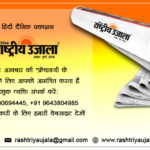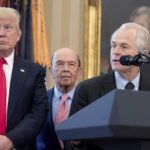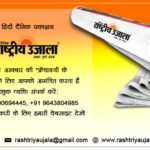New Delhi. On the third day of the Budget Session in the Lok Sabha, opposition leader Rahul Gandhi delivered a speech. He said, «I listened to the President’s address. They have been repeating the same things for many years. Today, I will explain how their speech could have been.»
Rahul stated, «The Prime Minister’s ‘Make in India’ was a good idea, but the results are before you. I am not blaming the PM—it would be incorrect to say he didn’t try—but he failed.»
He further added, «Though we have grown rapidly, unemployment remains a problem that neither the UPA government nor the NDA government could successfully tackle.»
1. Criticized UPA Government on Unemployment Rahul also acknowledged shortcomings in his own party’s governance. He said, «The Congress-led UPA government also failed to solve the unemployment problem during its 10-year rule. The BJP government under Narendra Modi has similarly achieved nothing in the last decade.»
2. Praised Modi’s ‘Make in India’ Concept Rahul Gandhi also complimented the Modi-led central government. He noted, «India needs to boost its manufacturing sector. The sector’s share has declined from 15.3% in 2014 to 12.6% today—the lowest in 60 years. PM Modi attempted to improve this with his ‘Make in India’ initiative, but it was unsuccessful.»
3. Alleged Voter Data Irregularities The opposition leader claimed discrepancies in voter data, saying, «In Maharashtra, the voter roll for the Assembly elections, just five months after the Lok Sabha polls, suddenly increased by as much as Himachal Pradesh’s entire electorate. Normally, such additions take five years, not five months. Interestingly, these new voters are concentrated in constituencies where the BJP won. How did these voters magically appear after the Lok Sabha? We have asked the Election Commission to provide the Lok Sabha voter list electronically.»
4. Raised Issue of Chinese Incursion Rahul Gandhi said, «We talk about defense, yet China is at our doorstep. The PM denied Chinese incursions, but the Army disagreed. Suddenly, our Army Chief is negotiating with them, while the Chief of Defense Staff admits China has encroached.»
5. Accused BJP of Undermining Patel-Ambedkar Values He remarked, «I showed Shivaji’s picture in the House to remind us to stay focused. You speak of Patel and Ambedkar, yet you’ve destroyed their values. You bowed before Buddha but rejected his teachings. Hatred and violence have no place—they will ruin the nation.»
6. Called President’s Speech Repetitive Rahul dismissed the Budget speech as «a boring rehash of old lists.» He added, «I couldn’t even sit through it. It felt like listening to a fairy tale, not a presidential address.»
He referenced the US President’s inauguration, saying, «We don’t even send our Foreign Minister to invite our PM to such events. Had we built a strong manufacturing base, the US President would have invited him personally.»
Kiren Rijiju interrupted, stating, «The opposition leader cannot make such baseless remarks. This concerns bilateral relations. His statement on the PM’s invitation is incomplete.»
Rahul responded, «I apologize for disturbing your peace of mind.»
He also addressed China’s alleged occupation of 4,000 sq km of Indian territory, saying, «The PM denied it, but the Army contradicted him.» Lok Sabha Speaker Om Birla intervened, «You must provide evidence for your claims in the House.»
Lok Sabha
The **Lok Sabha** is the lower house of India’s bicameral Parliament and the primary legislative body of the country. Established in 1952 after India’s independence, it consists of elected representatives who draft and pass laws, oversee the executive branch, and represent the people. The Lok Sabha operates from the **Sansad Bhavan** (Parliament House) in New Delhi, a historic building designed by British architects Edwin Lutyens and Herbert Baker during the colonial era.
Make in India
«Make in India» is an initiative launched by the Indian government in 2014 to promote manufacturing, innovation, and investment in India. The program aims to transform India into a global manufacturing hub by encouraging both domestic and foreign businesses to produce goods within the country. It focuses on key sectors like automobiles, electronics, and textiles, offering policy support and infrastructure development to boost economic growth and job creation.
UPA government
The **UPA (United Progressive Alliance) government** was a coalition of political parties in India, led by the Indian National Congress, which ruled from 2004 to 2014 under Prime Ministers Manmohan Singh and (initially) Sonia Gandhi’s leadership. It introduced key social welfare programs like the **Mahatma Gandhi National Rural Employment Guarantee Act (MGNREGA)** and faced both praise for economic reforms and criticism over corruption scandals. The alliance marked a significant era in India’s post-liberalization politics, balancing growth initiatives with progressive policies.
NDA government
The NDA government refers to the National Democratic Alliance, a coalition of political parties in India led by the Bharatiya Janata Party (BJP). First formed in 1998 under Prime Minister Atal Bihari Vajpayee, it returned to power in 2014 and 2019 under Prime Minister Narendra Modi, emphasizing economic reforms, infrastructure development, and nationalist policies. The alliance has played a significant role in shaping India’s contemporary political and economic landscape.
Election Commission
The Election Commission is an independent body responsible for overseeing and administering electoral processes in a country, ensuring free and fair elections. Its history varies by nation, but many modern commissions were established to promote democratic governance, often evolving from earlier systems to address issues like voter fraud and partisan interference. Examples include India’s Election Commission (founded in 1950) and the U.S. Federal Election Commission (created in 1974), each playing a key role in upholding electoral integrity.
Shivaji
Chhatrapati Shivaji Maharaj (1630–1680) was a legendary Indian warrior-king and the founder of the Maratha Empire in western India. Known for his military genius, progressive governance, and resistance against Mughal rule, he established a strong naval force and fortified hill forts like Raigad and Pratapgad. Today, he is celebrated as a national hero in India, with numerous monuments, statues, and the Chhatrapati Shivaji Terminus (a UNESCO World Heritage Site) named in his honor.
Patel
«Patel» is a common surname in India, particularly among people of Gujarati and Rajasthani origin, often associated with the agrarian community. Historically, the term «Patel» referred to village leaders or land administrators during the Mughal and British colonial periods. Today, it represents a significant cultural and social identity, with many individuals of the Patel community playing prominent roles in business, politics, and the diaspora, especially in the United States and the United Kingdom.
If you meant a specific place or cultural site named «Patel,» please provide more details!
Ambedkar
Dr. B.R. Ambedkar (1891–1956) was a prominent Indian jurist, social reformer, and the chief architect of the Indian Constitution, who dedicated his life to fighting caste discrimination and advocating for the rights of Dalits (formerly «untouchables»). Several places and institutions in India are named after him, including the **Dr. Babasaheb Ambedkar Memorial** in Mumbai and the **Ambedkar Jayanti** celebration held annually on his birth anniversary (April 14). His legacy continues to inspire movements for social justice and equality in India and beyond.




